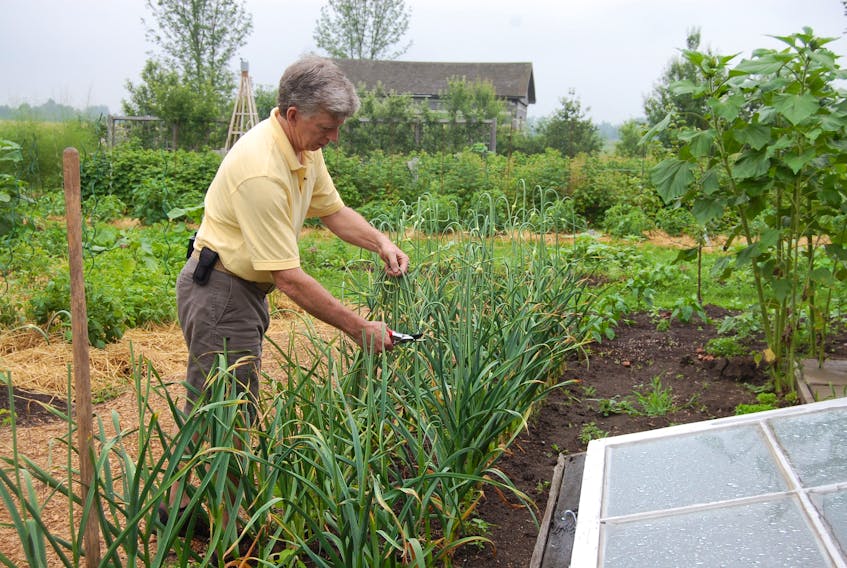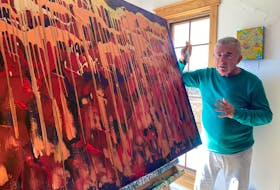Middles do not get a lot of credit. The middle part of a story can feel long, our mid-sections are never strong enough, and the middle child often feels overlooked. Ask Mark, the third of five children.

Of course, as Mark would argue, nothing exists without the middle – the middle holds it together.
Here are our top mid-summer food gardening tips, to ensure you hold it together:
– Prune your tomatoes to stimulate more yield. This is a lot easier than pruning trees or shrubs. Simply pinch off the suckers that grow between the main stem and lateral branch. While you are at it, stake your tomatoes if you have not already. Propping them up off the ground improves airflow and minimizes fungal disease. It will double your crop too. Apply bordo mixture every two weeks to prevent early blight. Bordo is a copper-based fungicide that is safe to use.
– Finish sowing late season crops such as leaf lettuce, mesclun, radish, beets, broccoli, carrots, onions, and peas for harvest into the cooler weeks of fall. By sowing now, you will keep the happy harvest momentum going right into autumn. Many of these plants will grow better now than when sown early in the season.
– Harvest garlic scapes. Research by John Zandstra, who taught Ben while attending University of Guelph, Ridgetown Campus, tells us the sooner we harvest pigtail curled garlic scapes, the better. The result is the largest possible bulb at harvest in late August. Trim the scapes soon to yield a 20-30 per cent larger bulb. Be careful not to cut the leaves, however, as trimming a single leaf can decrease yield by 17.5 per cent.
– Stop harvesting rhubarb when the stalks become thin. The remaining leaves boost the root structure for a good crop next year. Early in autumn, add a 5-7 cm layer of compost or rotted manure.
– Harvest new potatoes two to three weeks after the flowers have stopped. New potatoes are delicious for their tender skin and sweetness, but do not keep as well as mature potatoes. Any variety of potato can be harvested new or mature, it is really a matter of timing. For mature potatoes, cut the foliage off two to three weeks after it has died back, then allow 10-14 days more for their skins to toughen up before digging. Do not overwater during this period, as the crop may begin to rot or develop scab if left for too long.
– Raspberries and cherries need harvesting immediately. If left on the plant they will rot and infect new, ripening fruits while minimizing your overall yield. Prune July bearing raspberries right after their harvest, as these plants bear fruit on new wood next season.
– Strawberries need love after they have been picked over and harvested. Remove the straw or mulch that has kept the fruits off the ground and compost it. Cut off the old leaves, leaving only the new leaves and crown open to sunlight. This will allow the plant to fill out and produce more strawberries next year. Put down a generous layer of compost, 5-7 cm, and remove any nets that are protecting the plants.
– Apples, pears and other fruit trees need your continued support as well. Ignore the spray program and your yield will suffer. Mark uses End-All and Garden Sulphur every two weeks as a safe method for keeping insects and fungal disease at bay.
That is the middle – a remarkably busy time in the garden where you still play an active role in the arch of the growing season. Make sure to slow down, enjoy your bounty and appreciate this moment between the beginning and end. And give credit to your middle child. You will think of something. Or they will remind you.
Mark Cullen is an expert gardener, author, broadcaster, tree advocate and member of the Order of Canada. His son Ben is a fourth-generation urban gardener and graduate of University of Guelph and Dalhousie University in Halifax. Follow them at markcullen.com, @markcullengardening, and on Facebook.









